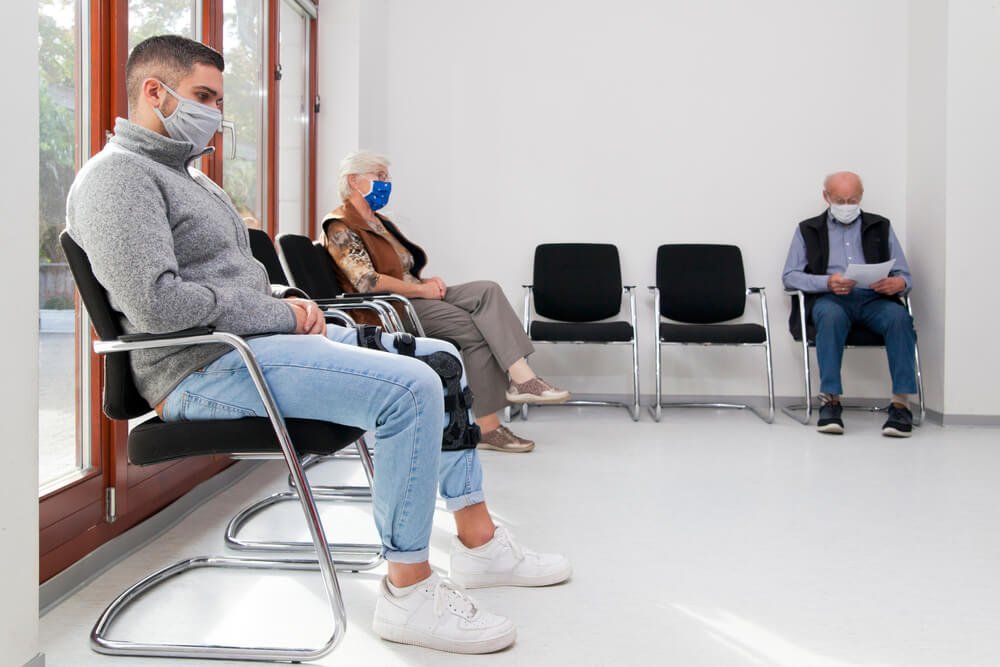NeuroStar® TMS Therapy
FDA-cleared, non-medication depression treatment
Existing Patients For Providers →
(855) 940-4867

Medically reviewed on by
Regional Medical Director Greater St. Louis
After decades of limited choices in the treatment of depression, ketamine and other medications related to it have taken off as promising new options for those who still suffer. It just might be the treatment for depression that you’ve been waiting for.
Surprisingly, ketamine was originally used as an anesthetic for surgery. Approved in 1970, it was especially useful in some special situations, including emergency surgery in the battlefield. It is sometimes used for anesthesia even today, and it is also commonly used for anesthesia in veterinary medicine. It’s been called a “horse tranquilizer” because, well, it’s been used to tranquilize horses.
Ketamine has also occasionally been a drug of abuse. The FDA categorizes ketamine as a Schedule III drug, which means it has a low or moderate potential for abuse. Ketamine abuse is rare. But still, ketamine as a drug of abuse has acquired some colorful street names such as “special K” and “blind squid.”
The history of ketamine took a surprising turn around 2009 when there were the first reports of a sudden improvement in depression among some people treated with ketamine. People sometimes improved almost immediately with ketamine, and that was in sharp contrast to the several weeks needed for improvement with antidepressants. This rapid improvement with ketamine contradicted what we thought we knew about medicine for depression, and it sounded too good to be true. But, further research into ketamine and ketamine-like drugs proved that the benefit was real. Finally, one of these drugs, esketamine, gained FDA approval in 2019. Esketamine (pronounced like “s-ketamine”) is just one of many treatments recently approved or on the horizon. Psychedelics such as psilocybin, for example, are a possible treatment in the future. New treatments often work when standard treatments such as antidepressants and therapy have failed – so new options give hope to countless people who still suffer from depression.
Esketamine is given as a nasal spray. And, because it’s already FDA-approved, it is usually covered by insurance. We offer that medication at Greenbrook.
Greenbrook TMS is a certified esketamine nasal spray provider. In a typical esketamine nasal spray treatment schedule, you’ll receive two treatments per week for four weeks, and then one treatment per week for the next four weeks. After that, treatment is typically once every one or two weeks.
You’ll receive your treatment in a relaxing area, in a comfy chair in your own private room or cubicle. Throughout your two-hour session, your care team will monitor you, and will be available if you need anything. In addition, the medical provider will be nearby, and will make rounds during your treatment to assess how you are doing.
Are you ready to take the next step in your journey to relieving symptoms of depression? To learn more about your options,
schedule your free consultation with Greenbrook TMS or give us a call at 855-940-4867 today. We offer both esketamine, and
TMS (transcranial magnetic stimulation).
Thanks for subscribing to our list!
Take our short quiz to see if TMS therapy or nasal esketamine could be right for you
Subscribe for mental health, self-care, and TMS therapy and nasal esketamine updates for those affected by treatment-resistant depression or OCD.
Thank you for subscribing to our email list!
Oops, there was an error adding your subscription.
Please try again later.
By providing your email address, you are consenting to receive blog updates from Greenbrook TMS Inc. You may unsubscribe from these alerts at any time by following the “unsubscribe” link at the bottom of email alerts. At Greenbrook TMS Inc. we take the privacy and security of your personal information seriously. To learn more about how we protect your personal information, please refer to our Privacy Policy.


Greenbrook supports an accessible internet. If you have any questions about our accessibility features, please contact us at
(855) 940-4867 or info@greenbrooktms.com.
All Rights Reserved | Greenbrook TMS NeuroHealth Centers.